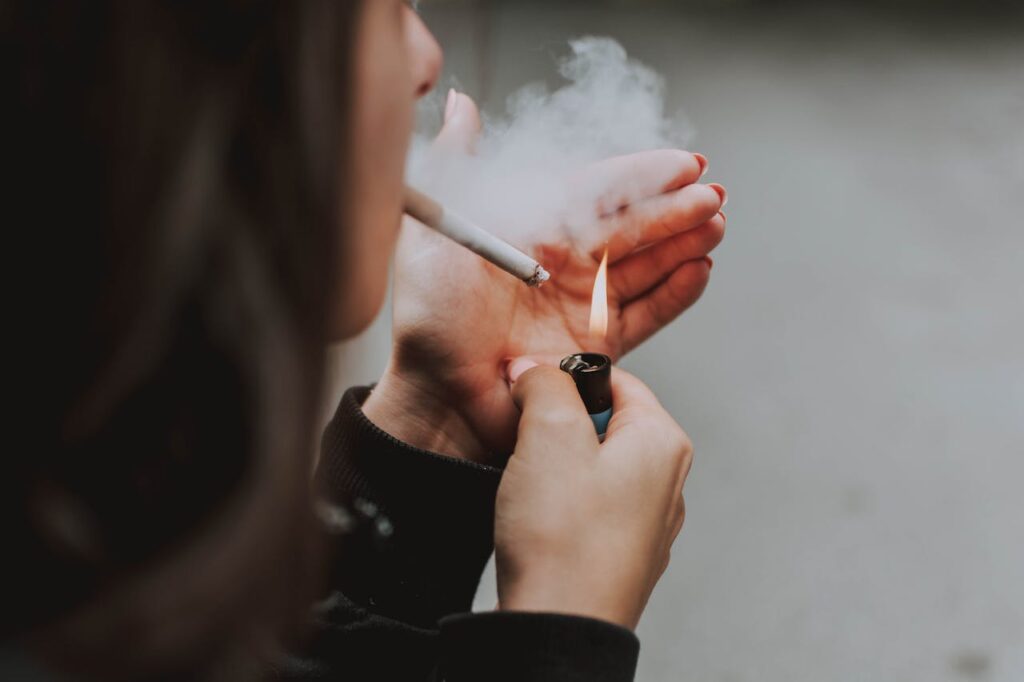
Table of Contents
Addiction is one of the ongoing battles in society. Addiction is a chronic and relapsing disorder resulting in continuous drug use. It is a repetition of a habit or substance that is addictive. This later leads to the person becoming addicted to it, leading to drug use disorder. The individuals who are addicted to drugs are unable to resist the habit, regardless of the consequences.
Science of Addiction
Drug use and addiction is a complex situation with continuous effects on the physical, mental and social well-being of an individual. The chemicals present in the drugs cause serious risk factors for the brain’s chemical system and circuits.
Dopamine is produced in the brain on the consumption of these drugs to try to feel a sense of euphoria and instigates the behaviour of seeking more drugs. Over time, on repeated use of a drug, the brain will start adapting to the intake of these chemicals and will reach a state where more intake of the substances is required to cross the tolerance level. This changes the brain’s system; it lasts a long time and will make people addicted to drugs.
Problems due to drug addiction do not get restrained to personal issues but get extended to the economy also. Increasing healthcare expenses, low productivity and absenteeism seriously impact the economy. Research shows that people belonging to the younger age group are more likely to become addicts. Peer influence and brain changes during adolescence make young individuals more prone to experimentation and the display of risky behaviours, leading to the usage of drugs at an early age.
Drug addiction
Addiction is called a brain disorder resulting from continued substance use. It severely alters and damages the brain’s chemical circuit. This results in a weak prefrontal cortex, leading to compulsive use of drugs despite its negative consequences.
Earlier, the original meaning of the term addiction was different. It is meant to “give over” or be highly devoted to something or someone, which may have positive or negative outcomes. Over time, the meaning of addiction has changed.
The term “addiction” has been stigmatized and criticized among individuals. It comes from a combination of misconceptions and attitudes among people.
Classifications of addiction
The usage and non-usage of substances define the two categories of individual addiction. The repeated demand for a particular drug like nicotine or opioids is termed a substance-based addiction. In contrast, behavioural addiction is caused by involvement in a specific activity like shopping or gaming instead of drugs and alcohol.
Difference between SUD and Substance Misuse
Substance Use affects the circuits of the brain. The individual cannot control the usage of a particular substance. It includes e-cigarettes, alcohol, caffeine, cannabis, opioids, cocaine, etc.
The state of Disorder caused by substance use and substance abuse are two different conditions. People who consume occasionally may not have a substance use disorder. The continuous use of substances in an uncontrolled manner by an individual will result in heavy dependency on the substance.

Symptoms for Addiction
The symptoms of addiction are as follows:
- Constant failure to resist the impulse to engage in drugs.
- Increase in restlessness or tension before engaging in drugs or addictive substances.
- Sense of relief or euphoria at the time of engagement.
- The feeling of losing control while engaging in substances.
- Frequent engagement of addictive behaviour for an extended period.
- Repeated efforts to reduce or stop the behaviour.
- Dedicating a significant amount of time to recover from the effects of the substance or addictive behaviour.
- Continuation of the addictive behaviour even though they are aware of the consequences.
- Needing more substance or engaging in addictive behaviour over time to achieve the effect.
- Restlessness or irritability when not engaged in the behaviour
What Led People to Become Addicted to Drugs?
There are a few elements of how an individual leads to addiction. It varies from person to person. Once the person is addicted, they are unable to restrain it. The person will fall into this cycle of relapse even after refraining from drugs for a long time. The stages are as follows:
- In this stage, individuals arrive at an initial decision to take drugs without understanding how it affects their brain and behaviour, mainly due to peer pressure, curiosity or stress factors. This will result in developing an addiction towards a particular substance.
- The pleasure sensations obtained from these drugs will create a tendency for repeated drug use to get the same feelings, and slowly, the person will become addicted to it.
- Continuous and regular use of the drugs will increase the tolerance level of the body, and start consuming larger doses of the drug to get high, underestimating the risks. As tolerance develops, the pattern of drug seeking and use increases the risk of addiction and eventually turns into a destructive cycle for the individual.
- Over time, the negative consequences due to the usage of drugs become apparent. Broken relationships, Occupational problems and physical health issues will become evident, and individuals will struggle to restrict their use and take an exit from the loop.
- This is the phase where the individual understands the requirement of change and shows a desire to exit from the usage of drugs. This will create an internal conflict between the individual desire to continue or quit the use of drugs.
- Attempts to quit the usage begin at this phase, seeking help from individuals or taking professional help in addiction treatment. However, the emotional issues and carvings will make this phase difficult.
- External triggers will affect the individual’s ability to restrict the usage of drugs. These external factors can be from peer pressure or social situations.
- The internal battle, external triggers and stressors will finally lead to relapse, which essentially means the return to the use of substances, breaking the self-made barrier. The individual now starts feeling guilt and shame on one’s inability to control his urge towards the drugs and will start feeling that it is not achievable.
Hence, the cycle repeats every time, even after years of not taking it.
Drug misuse and addiction are entirely different scenarios—the unhealthy relationship with substances or behaviours. When individuals become addicted, they get emotionally dependent on it. This will affect their mental and physical health. They are unable to get rid of substances despite their negative consequences. Drug misuse is the occasional consumption of drugs or substances.
Treatment Approach for Drug Addiction
People struggling with addictions should seek help from healthcare support services or an addiction specialist. Addiction psychiatry will help you diagnose addiction. Treatment options for overcoming addiction may include a medical process that helps manage withdrawal symptoms, counselling and support from family and friends. Addiction healthcare providers can help patients through treatments like medication-assisted therapies and behavioural therapies for the patients to stop using drugs.
Individual interventions and prevention programs involving families are essential for effective treatment. Involving families in the recovery process promotes the overall effectiveness of treatment, and it gives the best chance of success for individuals combating drug addiction.
FAQs
An individual may be influenced by his family or peers towards using a drug or substance without knowing the effect of it. Condition like job-related stress or economic status also leads to addiction.
It largely depends on the individual's ability to control his addiction to a substance or activity. Addiction usually does not start with a single-time use of it. However, an individual starts feeling vital changes with addiction.
Both are different in how the brain perceives it. One is caused by the repeated seeking of a particular substance and turning it into a basis of addiction. The other may be due to the release of dopamine in the brain while doing a specific activity, which does not include substance.
It is essential for those who are addicted to getting treatment from a healthcare support service or assistance from a drug counsellor. Following diagnosis, the medical professional will recommend a course of treatment that may involve counseling, therapy, and medication to manage symptoms of withdrawal and cravings.










